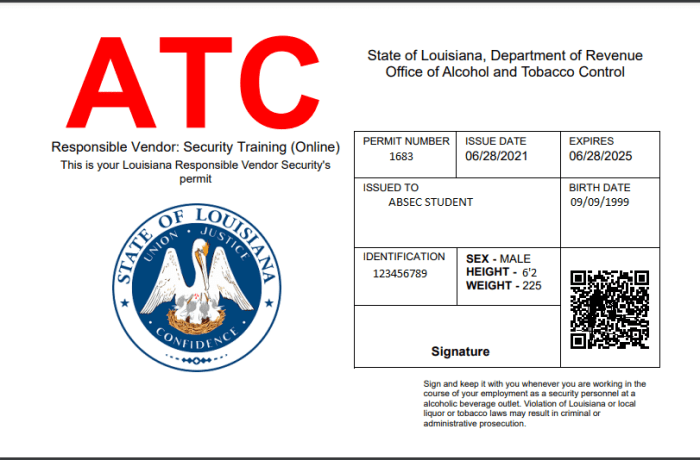Responsible vendor server permits must be refreshed every specified period to ensure compliance with regulatory requirements and maintain the integrity of vendor operations. This comprehensive guide will delve into the importance of permit refreshes, the consequences of non-compliance, and the best practices for effective permit management.
The frequency of permit refreshes varies depending on industry regulations and vendor-specific factors. Understanding the reasons behind these requirements is crucial for vendors to avoid disruptions and maintain regulatory compliance.
Vendor Server Permit Refresher

Responsible vendor server permits must be refreshed periodically to ensure compliance with regulatory requirements and industry best practices. Failure to do so can have serious consequences, including fines, penalties, and even legal action.
Step-by-Step Guide to Refreshing Vendor Server Permits
- Review the permit renewal schedule and deadlines.
- Gather all necessary documentation, including proof of compliance with relevant regulations.
- Submit the renewal application to the appropriate authority.
- Pay the required renewal fees.
- Maintain records of all permit renewals for future reference.
Permit Refresh Frequency

The frequency with which vendor server permits must be refreshed varies depending on the specific requirements of the governing regulatory body. Some permits may require annual renewal, while others may only need to be refreshed every few years.
Impact of Permit Refresh Frequency on Vendor Operations, Responsible vendor server permits must be refreshed every
- Increased administrative burden for vendors.
- Potential for disruptions in service if permits are not renewed on time.
- Increased costs associated with permit renewal.
Automated Permit Refresh Systems
Automated permit refresh systems can help vendors streamline the permit renewal process, reduce administrative burden, and minimize the risk of non-compliance.
Criteria for Selecting an Effective Automated Permit Refresh System
- Integration with vendor’s existing IT systems.
- Ability to track permit expiration dates and automatically trigger renewal processes.
- Secure storage and management of permit documentation.
- Reporting and analytics capabilities to track compliance and identify areas for improvement.
Vendor Responsibilities
Vendors are responsible for maintaining responsible server permits and ensuring compliance with all applicable regulations. Failure to do so can result in penalties, fines, and even legal action.
Potential Consequences of Vendor Non-Compliance
- Fines and penalties.
- Suspension or revocation of permits.
- Legal action.
Regulatory Compliance

Responsible vendor server permits are governed by a variety of regulatory frameworks, including the Payment Card Industry Data Security Standard (PCI DSS) and the General Data Protection Regulation (GDPR).
Legal Implications of Non-Compliance with Permit Requirements
- Fines and penalties.
- Legal liability for data breaches and other security incidents.
- Damage to reputation and loss of customer trust.
Popular Questions: Responsible Vendor Server Permits Must Be Refreshed Every
Why is it important to refresh responsible vendor server permits?
Refreshing permits ensures compliance with regulatory requirements, maintains vendor reliability, and mitigates risks associated with outdated or expired permits.
What are the consequences of not refreshing permits on time?
Non-compliance with permit requirements can lead to fines, penalties, suspension of operations, and reputational damage.
How can I automate the permit refresh process?
Automated permit refresh systems can streamline the process by sending reminders, generating renewal applications, and tracking permit status.